
Murray Newton Rothbard was an American economist of the Austrian School, economic historian, political theorist, and activist. Rothbard was a central figure in the 20th-century American libertarian movement, particularly its right-wing strands, and was a founder and leading theoretician of anarcho-capitalism. He wrote over twenty books on political theory, history, economics, and other subjects.
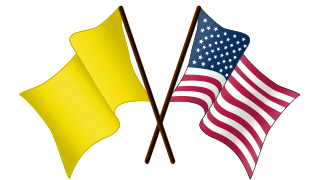
The Libertarian Party (LP) is a libertarian political party in the United States that promotes civil liberties, non-interventionism, laissez-faire capitalism, and limiting the size and scope of government. The world's first explicitly libertarian party, it was conceived in August 1971 at meetings in the home of David F. Nolan in Westminster, Colorado, and was officially formed on December 11, 1971, in Colorado Springs. The organizers of the party drew inspiration from the works and ideas of the prominent Austrian school economist Murray Rothbard. The founding of the party was prompted in part due to concerns about the Nixon administration's wage and price controls, the Vietnam War, conscription, and the introduction of fiat money.
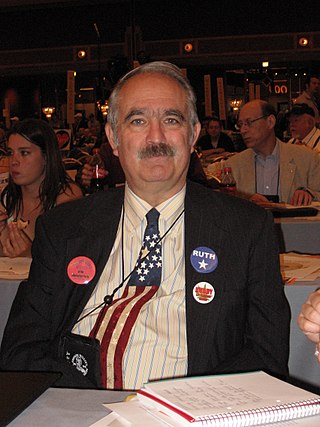
David Fraser Nolan was an American activist and politician. He was one of the founders of the Libertarian Party of the United States, having hosted the meeting in 1971 at which the Party was founded. Nolan subsequently served the party in a number of roles including National Committee Chair, editor of the party newsletter, Chair of the By-laws Committee, Chair of the Judicial Committee, and Chair of the Platform Committee.

James Polin Gray is an American jurist and writer. He was the presiding judge of the Superior Court of Orange County, California. Gray was the 2012 Libertarian Party vice presidential nominee, as well as the party's 2004 candidate for the United States Senate in California. He is the author of multiple books and a play, and is an outspoken critic of American drug laws.
Libertarian perspectives on foreign intervention started as a reaction to the Cold War mentality of military interventionism promoted by American conservatives, including William F. Buckley Jr., who supplanted Old Right non-interventionism.

Paleolibertarianism is a right-libertarian political activism strategy aimed at uniting libertarians and paleoconservatives. It was developed by American anarcho-capitalist theorists Murray Rothbard and Lew Rockwell in the American political context after the end of the Cold War. From 1989 to 1995, they sought to communicate libertarian notions of opposition to government intervention by using messages accessible to the working class and middle class people of the time. They combined libertarian free market views with the cultural conservatism of paleoconservatism, while also opposing protectionism. The strategy also embraced the paleoconservative reverence for tradition and religion. This approach, usually identified as right-wing populism, was intended to radicalize citizens against the state. The name they chose for this style of activism evoked the roots of modern libertarianism, hence the prefix paleo. That founding movement was American classical liberalism, which shared the anti-war and anti-New Deal sentiments of the Old Right in the first half of the 20th century. Paleolibertarianism is generally seen as a right-wing ideology.

Edward E. Clark is an American lawyer and politician who ran for governor of California in 1978, and for president of the United States as the nominee of the Libertarian Party in the 1980 presidential election.

Justin Raimondo was an American author and the editorial director of Antiwar.com. He described himself as a "conservative-paleo-libertarian."

Theodora Nathalia "Tonie" Nathan was an American radio producer, television producer, and political activist. She was the first woman to receive an electoral vote in a United States presidential election. She was the 1972 vice presidential nominee of the Libertarian Party and running mate of John Hospers, when Roger MacBride, a Republican elector from Virginia, cast the historic vote as a faithless elector.

Antiwar.com is an American political website founded in 1995 that describes itself as devoted to non-interventionism and as opposing imperialism and war. It has a right-wing libertarian perspective and is a project of the Randolph Bourne Institute. The website states that it is "fighting the next information war”.
Alan W. Bock was an American libertarian author. He was a senior editorial writer and former editorial page editor for the Orange County Register for over 25 years. He wrote regular columns for WorldNetDaily, LewRockwell.com, and Antiwar.com and was a contributing editor at Liberty magazine. He had also been published in The American Conservative.

Kevin Bruce Zeese was an American lawyer, U.S. Senate candidate and political activist. He worked to end the war on drugs and mass incarceration, and was instrumental in organizing the 2011 Occupy encampment in Washington, D.C. at Freedom Plaza and occupying the Venezuelan Embassy in the District of Columbia. Zeese co-founded the news site PopularResistance.org in 2011 with his partner, Margeret Flowers. Zeese died of a heart attack on September 6, 2020.
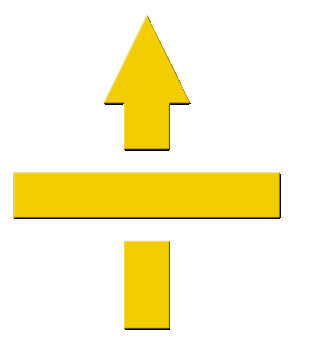
Libertarian Party Radical Caucus is a caucus formed in 2006 within the United States Libertarian Party by Susan Hogarth and other party members who opposed removal of much of the material in the party platform during the 2006 national party convention. The caucus generally subscribes to an ideology of anarcho-capitalism. The caucus was active at the 2008 and 2010 Libertarian National Conventions. The radical caucus was revived and was extraordinarily active during the 2016 Libertarian National Convention.

Libertarian conservatism, also referred to as conservative libertarianism and, more rarely, conservatarianism, is a political and social philosophy that combines conservatism and libertarianism, representing the libertarian wing of conservatism and vice versa.

The Ron Paul presidential campaign of 1988 began in early 1987 when former Congressman Ron Paul of Texas announced his candidacy for the 1988 presidential nomination of the Libertarian Party. He joined the third party after leaving the Republican Party over the Reagan administration's handling of the federal budget. He ran on a platform that included non-interventionism in foreign conflicts, decriminalization of illegal drugs on a federal level, a return to the gold standard, the abolition of the Federal Reserve and a reduction in all government spending.
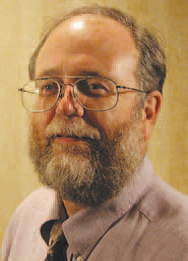
L. K. Samuels, also known as Lawrence Samuels, is an American author, classical liberal, and libertarian activist. He is best known as the editor and contributing author of Facets of Liberty: A Libertarian Primer and In Defense of Chaos: The Chaology of Politics, Economics and Human Action. He coined the phrase "social chaology", which refers to the studies of complex, holistic, and self-organizing nature of society in relationship to the linear, predatory and "planned chaos" predispositions of government.
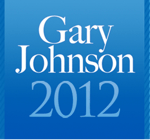
The 2012 presidential campaign of Gary Johnson, the 29th governor of New Mexico, was announced on April 21, 2011. He declared his candidacy for the 2012 Republican Party nomination for President of the United States. On December 28, 2011, Johnson withdrew his candidacy for the Republican nomination, and declared his candidacy for the 2012 presidential nomination of the Libertarian Party. The 2012 Libertarian National Convention was held during the first weekend of May 2012. On May 5, 2012, after promoting his libertarian-oriented political positions to delegates, Johnson received the most votes at the convention and became the official 2012 Libertarian presidential nominee. On November 6, 2012, Johnson received just under 1% of the popular vote in the general election, amounting to more than 1.2 million votes, more than double what the Barr/Root ticket received in 2008. This was the most successful result for a third-party presidential candidacy since 2000, and the best in the Libertarian Party's history by vote number at the time. Johnson ran again in 2016 and received nearly four times his 2012 vote total.
The Libertarian Party in the United States is composed of various factions, sometimes described as left and right, although many libertarians reject use of these terms to describe the political philosophy.

The 2016 Libertarian Party presidential primaries and caucuses allowed electors to indicate non-binding preferences for the Libertarian Party's presidential candidate. These differed from the Republican or Democratic presidential primaries and caucuses in that they did not appoint delegates to represent a candidate at the party's convention to select the party's nominee for the United States presidential election. The party's nominee for the 2016 presidential election was chosen directly by registered delegates at the 2016 Libertarian National Convention, which ran from May 26 to 30, 2016. The delegates nominated former New Mexico governor Gary Johnson for president and former Massachusetts governor Bill Weld for vice president.

Butler D. Shaffer was an American author, law professor and speaker, known for his numerous libertarian books and blog articles for LewRockwell.com. He was a professor of Law Emeritus at the Los Angeles-based Southwestern University School of Law.
















